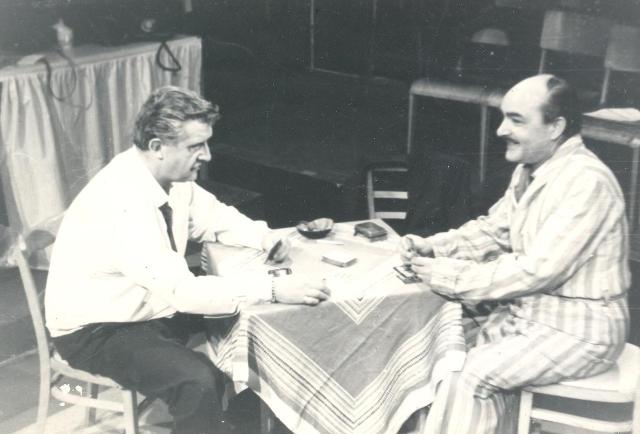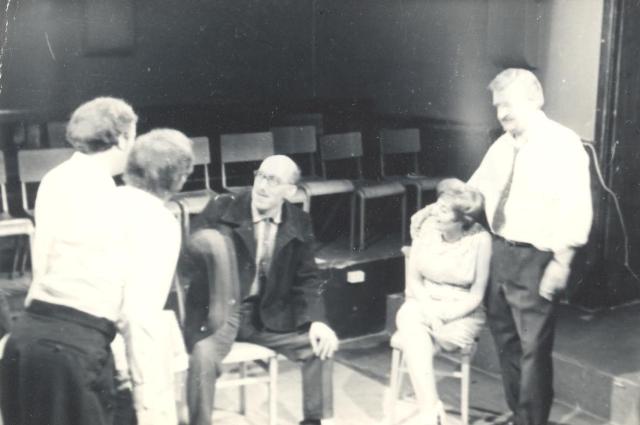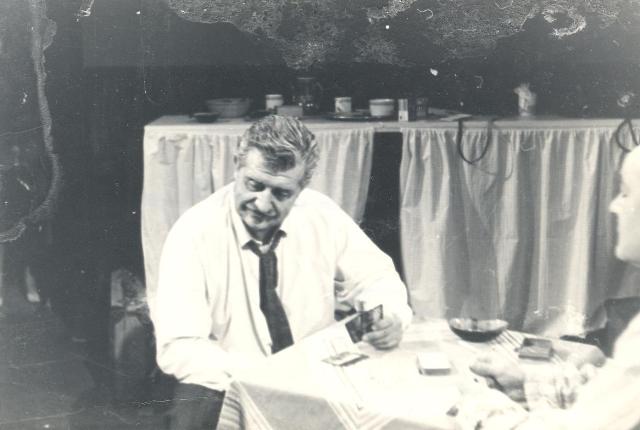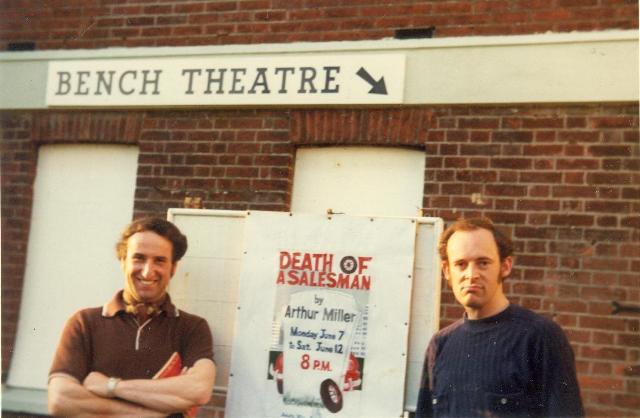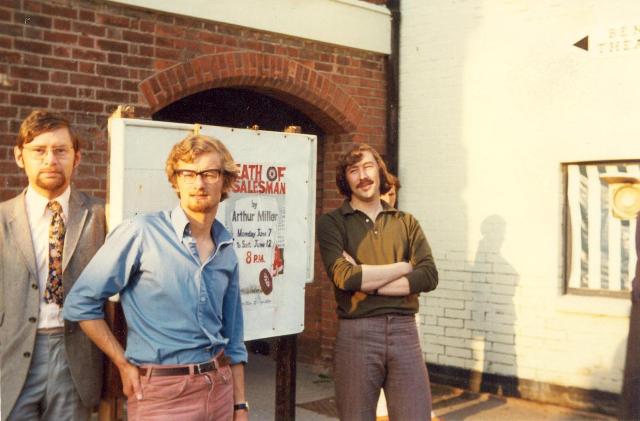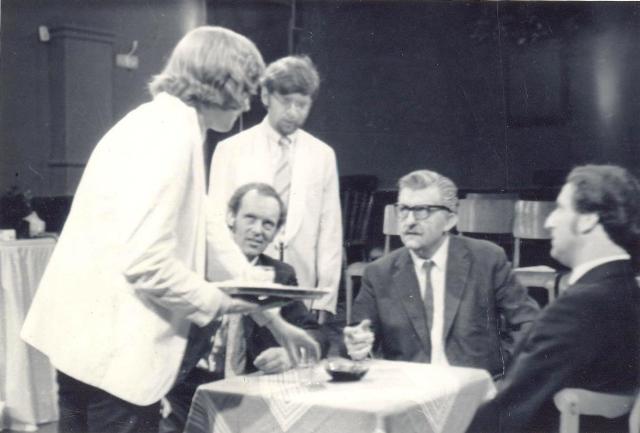The Bench Production
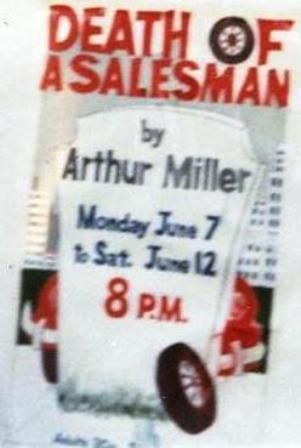
Bench Theatre's original name was 'Theatre Union' and was later changed to reflect the name of the theatre in West Street where most of their productions were staged. This play was performed under the original Theatre Union name at The Bench Theatre in West Street. It was the company's first major production at that venue since the building was converted from its previous use as a Magistrates' Court in 1970.
Cast
| Willy Loman | Ray Osborne |
| Linda | Eve Moore |
| Biff | Derek Cusdin |
| Happy | Tony Starr |
| Bernard | Clive Wilson |
| The Woman | Maureen Burness |
| Charley | David Spackman |
| Uncle Ben | Derek Ream |
| Howard Wagner | Peter Cole |
| Jenny/Miss Forsyth | Helena Whalley |
| Stanley | John Davis |
| Letta | Pamela Ayling |
| Waiter | David Lings |
Crew
| Director | Tim Mahoney |
| Producer | Tim Mahoney |
| Stage Manager | Ken Ayling |
| Lights | Jon Whalley Richard Carpenter |
| Make-up and Costumes | Helena Whalley |
| Sound | John Davis |
Reviews
County PressMichael Allen
'Salesman' never toppled
Theatre Union - Havant's thriving young drama group - last week passed one of the sternest tests the stage can offer. Its Bench Theatre production of 'Death of a Salesman' never toppled over the precarious knife-edge that separates tragedy from pathos. If anything, the tiny setting of the Bench made the danger all the more acute - an audience can be too close to the events on stage. But producer Tim Mahoney turned even this to advantage, creating an atmosphere of heated intimacy that is peculiarly appropriate to Arthur Miller's play.
It is principally to Mr Mahoney's credit, of course, that his talented cast never lost its grip on the tragic tightrope, and it is to his credit too that the sound and lighting effects were so precisely integrated in to the scheme of the play. The flashback technique never caused any problem.
But inevitably the final plaudits must go to the cast itself. Ray Osborne as Willy Loman and Eve Moore as his wife proved themselves to be players who can hold an audience in the palm of their hands - by quite different methods. The one was all action - and the other was all dignity. There was little need for the suspension of disbelief while they were on stage.
And then there were Derek Cusdin and Tony Starr as the two sons. Tony Starr also composed the evocative music for the production and altogether proved himself a priceless new acquisition for Theatre Union. As boy and man he was equally successful. Mr Cusdin was more convincing as a youngster - when he acts tension, he seems to tighten up too much - but in the vital Boston scene where he finds his hero-father is a fake, his change of attitude was finely and precisely portrayed,
David Spackman, Helena Whalley and John Davis are among those who shone brightly in smaller parts, but for once there were no weaknesses. The resources of Theatre Union seem to be plentiful, and that is another sign of great things to come.
County Press, 17th June 1971
The NewsM.A.
Theatre Union grows up - fast
Even in plotting his own death, Willy Loman cannot "burn that phoney dream" of being a man that matters, a man who has friends in every city. He has never grown up, never found his own identity. The wife who is his foundation calls him a little boat in search of a harbour. He is, I suppose, a man destined in his dreams for tragedy. And a terrible, beautiful, moving tragedy Arthur Miller has made of him.
The play is 'Death of a Salesman' and this week it becomes the first major production by Theatre Union is its own Bench Theatre at West Street, Havant.
The production by Tim Mahoney shows that this lively group is, unlike Willy Loman, growing up fast. It has turned the limitations of its tiny theatre to positive advantage, creating an atmosphere of heated intimacy that is peculiarly appropriate to this play.
Clever casting, lighting and sound effects, and special music written by Tony Starr - all show the huge resources of Theatre Union. But what counts most of all, of course, is the quality of the personnel on stage. There is not one serious weakness in this production. Ray Osborne I have saluted before. It is enough to say that he filled the role of Willy - fumbling, muttering, blustering and gesturing - exactly as it should be filled.
But Eve Moore as his wife was his equal. Never mind about her unreliable American accent - she gave an ineffably natural performance of rare conviction with never a trace of over-emphasis. Derek Cusdin and Tony Starr (again) as the two sons contrasted well, and there were some notable achievements in the minor parts. But all I can say is this: go and see it at the Bench this week.
The News, 9th June 1971
